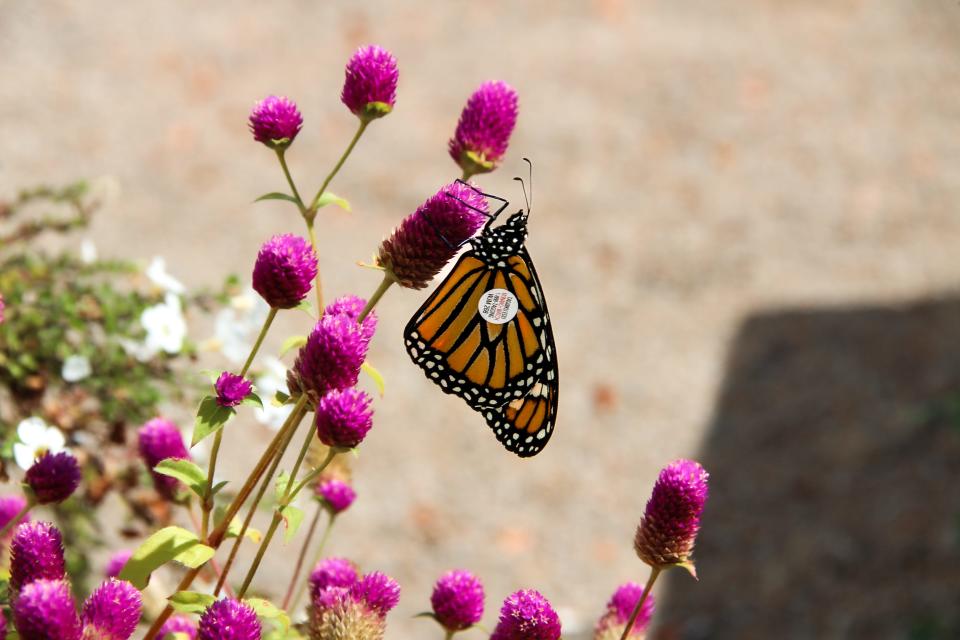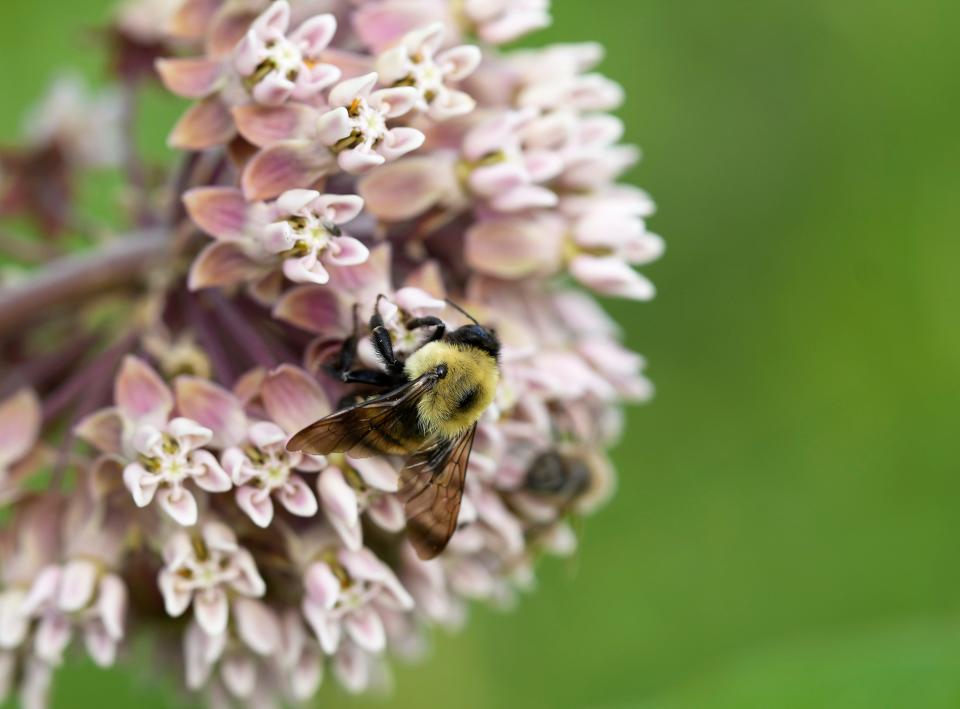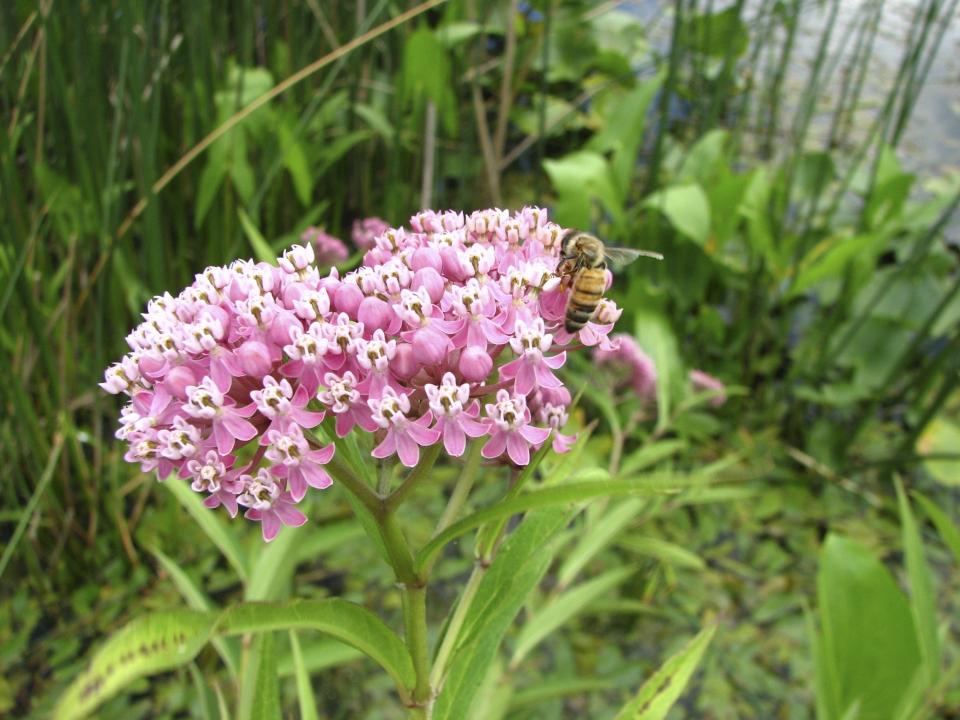How a tweak to Ohio law might help save monarch butterflies
State legislators aren't all about partisan bickering. They banded together in a kumbaya moment to help Ohioans do their part to save monarch butterflies.

The Ohio House unanimously passed a bill to loosen rules for sharing certain seeds for noncommercial purposes and remove some plants − including milkweed − from the state's noxious weeds list. Managers of toll roads and railroads are required to remove noxious weeds from rights-of-way.
Fans of monarch butterflies − and who isn't a fan? − want to restore milkweed plants across Ohio. Monarch females only lay eggs on milkweed and their caterpillars only eat milkweed. The hope is that the legislation will make it easier to plant more milkweed across Ohio.

"This is a bill we can all feel good about. We're protecting and promoting butterflies," said state Rep. Dave Dobos, R-Columbus, co-sponsor of House Bill 364.
Monarch butterflies make an intergenerational trek from the U.S. to central Mexico each winter in a spectacular natural phenomenon. Hundreds of thousands of them fly more than 2,000 miles each fall and return in the spring.
But the population counts are showing an alarming decline in recent decades. Why? Bad weather, pollution, loss of habitat and the decline in milkweed.

In 2017, the U.S. Geological Service reported that as many as 1.8 billion additional milkweed stems would be needed in North America to restore the monarch butterfly population. It takes about 28.5 milkweed stems to support one monarch overwintering in Mexico.
David Donofrio, president of the Ohio Prairie Association, said if the bill becomes law, it could encourage more landowners, garden clubs and conservation groups to plant milkweed and help save the monarchs.
"If we all come together in a concerted effort, just like we did with the eagle, we can bring it back from the brink of endangered species," Donofrio said.

Where are pollinator gardens?
The Ohio Prairie Association offers free design services to schools, parks and businesses that want to create rain gardens or native prairies, Donofrio said.
Several park systems, including Columbus Recreation and Parks and Metro Parks, have built pollinator habitats along bike trails and in parks.
Starting in 2013, the Ohio Department of Transportation started building pollinator habitats to roadsides, in part to help feed monarchs. The department now has 120 plots across 57 counties. The added benefit is that ODOT workers don't have to mow those 1,200 acres, said Matt Bruning, the department spokesman.
The bill still needs to clear the Ohio Senate before it lands on the governor's desk.
Laura Bischoff is a reporter for the USA TODAY Network Ohio Bureau, which serves the Columbus Dispatch, Cincinnati Enquirer, Akron Beacon Journal and 18 other affiliated news organizations across Ohio.
This article originally appeared on The Columbus Dispatch: Ohio looks to help save monarch butterflies with milkweed law change

